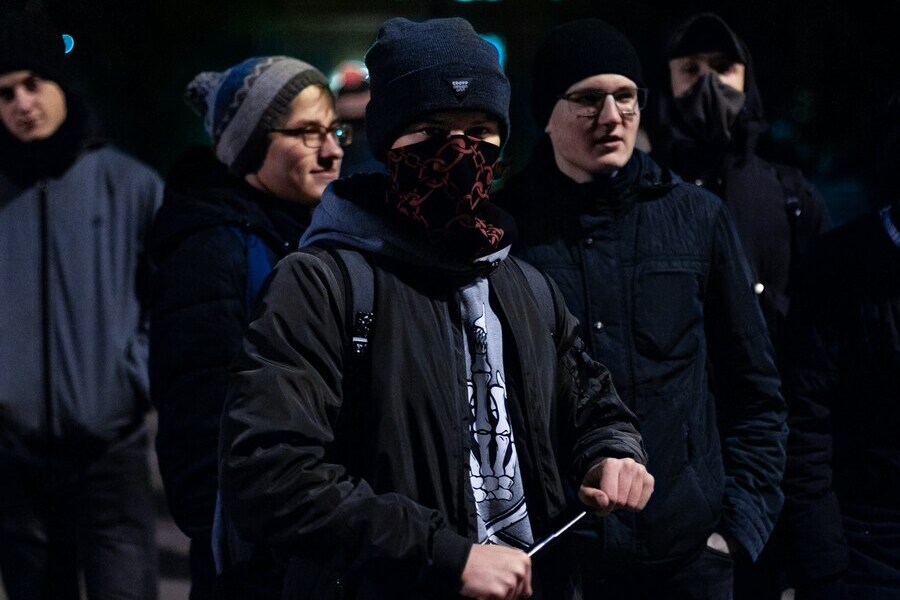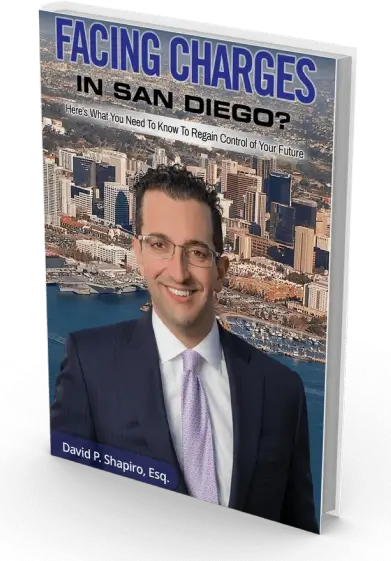Arrested or Charged with Prostitution or Solicitation (Penal Code 647(b)) in California?

If you or someone you know has been arrested or charged with prostitution or solicitation under California Penal Code § 647(b), it’s crucial to understand the nature of this offense, its potential consequences, and your legal options.
At David P. Shapiro Criminal Defense Attorneys, we defend individuals facing criminal charges, including those related to prostitution and solicitation. Our experienced attorneys are here to guide you through this challenging time and protect your rights.
Prostitution and Solicitation Charges in California
California Penal Code § 647(b) defines and penalizes prostitution and solicitation as forms of disorderly conduct. This law criminalizes both the act of engaging in prostitution and the act of soliciting or agreeing to engage in prostitution. Let’s break down the key elements of this law to build a comprehensive understanding of these charges.
Definition of Prostitution and Solicitation
According to Penal Code § 647(b), there are three main ways to violate this law:
- Soliciting prostitution
- Agreeing to engage in prostitution
- Engaging in prostitution
The law defines these violations as follows:
- Soliciting prostitution: An individual who solicits, or who agrees to engage in, or who engages in, an act of prostitution with the intent to receive compensation, money, or anything of value from another person.
- Agreeing to engage in prostitution: An individual who solicits, or who agrees to engage in, or who engages in, an act of prostitution with another person who is 18 years of age or older in exchange for the individual providing compensation, money, or anything of value to the other person.
- Engaging in prostitution: This refers to the actual act of engaging in sexual conduct for money or other consideration.
A person commits prostitution when they agree to perform sexual acts in exchange for money or anything else of value. This agreement happens whenever someone accepts either an offer or request to engage in such acts, as long as the person accepting intends to follow through.
Elements of the Crime
For a person to be convicted of prostitution or solicitation under § 647(b), the prosecution must prove several elements beyond a reasonable doubt. These elements vary slightly depending on whether the charge is for soliciting, agreeing to engage in, or engaging in prostitution:
For soliciting prostitution:
- The defendant solicited another person to engage in an act of prostitution.
- The defendant intended to engage in an act of prostitution with that person.
- The defendant did so with the specific intent to receive compensation, money, or something of value in exchange.
For agreeing to engage in prostitution:
- The defendant agreed to engage in an act of prostitution with another person.
- The defendant did so with the specific intent to engage in an act of prostitution.
- In addition to the agreement, the defendant did some act in furtherance of the commission of prostitution.
For engaging in prostitution:
- The defendant engaged in an act of prostitution.
- The defendant did so willingly.
- The defendant did so in exchange for money or other consideration.
It’s important to understand that the prosecution must prove each of these elements beyond a reasonable doubt for a conviction to occur.
Common Scenarios Leading to Prostitution and Solicitation Charges
To better understand how this law is applied, let’s consider some common scenarios that might lead to charges under § 647(b):
- A person offers money to another individual in exchange for sexual acts.
- An individual agrees to perform sexual acts in exchange for money or other valuable consideration.
- A person engages in sexual activity with another person in exchange for money.
- An undercover police officer is offered money for sexual services during a sting operation.
- A person responds to an online advertisement for prostitution services.
These scenarios illustrate the wide range of situations that can potentially lead to prostitution or solicitation charges. It’s important to note that even if no sexual act actually occurs, the solicitation or agreement alone can be enough for a charge under this law.
Penalties for Prostitution and Solicitation
Violation of Penal Code § 647(b) is typically charged as a misdemeanor in California. The potential penalties include:
- Up to 6 months in county jail
- A fine of up to $1,000
- Summary (informal) probation
However, the penalties can become more severe under certain circumstances:
- If the defendant has one or more prior convictions for prostitution, they may face a minimum of 30 days in county jail.
- If the defendant has two or more prior convictions, they may face a minimum of 90 days in county jail.
- If the offense involves a minor under the age of 18, the penalties can be significantly harsher and may include felony charges.
Additional Consequences
Beyond the criminal penalties, a conviction for prostitution or solicitation can have significant impacts on a person’s life:
- Employment difficulties: Many employers conduct background checks, and a prostitution conviction can make it challenging to secure certain jobs.
- Housing issues: Some landlords may be reluctant to rent to individuals with criminal records, especially for offenses of this nature.
- Immigration consequences: For non-citizens, a conviction could potentially lead to deportation or affect immigration status.
- Personal relationships: The stigma associated with a prostitution or solicitation conviction can strain personal and family relationships.
- Professional licenses: Certain professional licenses may be at risk following a conviction for prostitution or solicitation.
Given these serious potential consequences, it’s crucial to mount a strong defense against prostitution and solicitation charges.
Defenses to Prostitution and Solicitation Charges
While charges under § 647(b) are serious, there are several potential defenses that an experienced attorney can explore:
Lack of Intent
One of the strongest defenses is demonstrating a lack of intent to engage in prostitution. If the defendant did not actually intend to exchange sexual acts for money or other considerations, this could be a valid defense.
Entrapment
In cases involving sting operations, it may be possible to argue entrapment. This defense applies when law enforcement officers induce a person to commit a crime they would not have otherwise committed.
Insufficient Evidence
The prosecution must prove all elements of the crime beyond a reasonable doubt. If there’s insufficient evidence to meet this high standard, the charges should not result in a conviction.
Mistaken Identity
In some cases, the defendant may have been wrongly identified as the person who committed the act. This defense often involves challenging eyewitness testimony or presenting alibi evidence.
Lack of An Act in Furtherance
For charges of agreeing to engage in prostitution, the prosecution must prove that the defendant took some action in furtherance of the agreement. If no such act occurred, this could be a valid defense.
Constitutional Violations
If law enforcement violated the defendant’s constitutional rights during the investigation or arrest (such as conducting an illegal search), it may be possible to have certain evidence suppressed or even have the charges dismissed.
The Importance of Immediate Legal Representation
If you’re arrested or charged with prostitution or solicitation, it’s crucial to seek legal representation immediately. Here’s why:
- Protection of Your Rights: An experienced attorney can ensure that your constitutional rights are protected throughout the legal process.
- Case Evaluation: A skilled lawyer can thoroughly review the evidence against you and identify potential weaknesses in the prosecution’s case.
- Development of Defense Strategy: Based on the specifics of your case, your attorney can develop a robust defense strategy tailored to your situation.
- Negotiation with Prosecutors: In some cases, it may be possible to negotiate with prosecutors for reduced charges or penalties.
- Trial Representation: If your case goes to trial, you need a vigorous defense to challenge the prosecution’s evidence and present your side of the story.
How David P. Shapiro Criminal Defense Attorneys Can Help
At David P. Shapiro Criminal Defense Attorneys, we understand the gravity of prostitution and solicitation charges and the impact they can have on your life. Our experienced team of criminal defense attorneys is committed to providing strategic defense for our clients. Here’s how we can assist you:
- Immediate Action: We understand the urgency of your situation and can take immediate action to protect your rights.
- Thorough Case Evaluation: We’ll conduct a comprehensive review of your case, examining all evidence and identifying potential weaknesses in the prosecution’s case.
- Customized Defense Strategy: Based on the specifics of your case, we’ll develop a tailored defense strategy aimed at achieving the best possible outcome.
- Skilled Negotiation: When appropriate, we’ll negotiate with prosecutors to potentially reduce charges or penalties.
- Vigorous Trial Representation: If your case goes to trial, we’ll provide vigorous representation, challenging the prosecution’s evidence and presenting your defense.
- Support Throughout the Process: We understand how stressful this situation can be. Our team will support you throughout the legal process, keeping you informed and advising you on the best course of action at every stage.
Protect Your Rights and Your Future
Being charged with prostitution or solicitation in California is a serious matter that requires immediate action. However, an arrest or charge does not necessarily mean a conviction. With skilled legal representation, you can fight these charges and protect your rights and your future.
At David P. Shapiro Criminal Defense Attorneys, we have a deep understanding of California’s criminal laws and extensive experience defending clients against a wide range of charges, including prostitution and solicitation. We’re committed to providing our clients with the strongest possible defense, ensuring that their side of the story is heard and their rights are protected.
If you or someone you love is facing criminal charges in California, swift action is imperative. The penalties can be life-altering and long-lasting. Give us a call today to set up a case evaluation with one of our attorneys and learn how to best protect your freedom and future.
Too often, we see clients who “wait and see,” unsure of the legal landscape ahead, only for charges to escalate. They then find themselves backpedaling into a bad defense and an even worse lawyer. Don’t let that happen to you. Protect your freedom. Protect your future. Know your rights.
The contents of this article and blog are meant for informational and marketing purposes only and do not constitute legal advice. Viewing and/or use of the blog does not form an attorney-client relationship. No statements in this post are a guarantee, warranty, or prediction of a particular result in your case.









